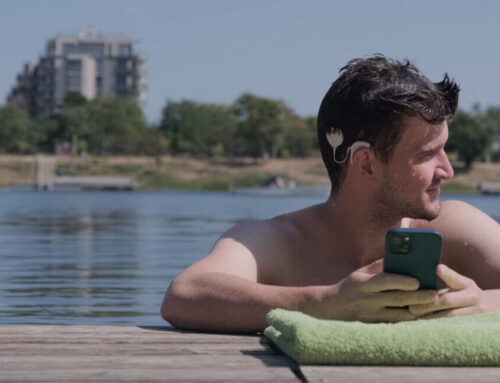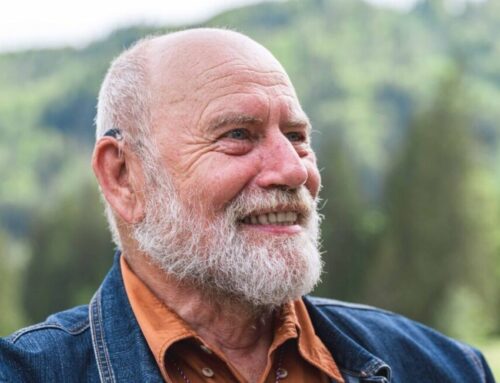An impact of good hearing on development of social skills
It is not just cognitive or emotional impairments that can influence the development of social skills, hearing ability also plays a part in that.

It is important to know in everyday interactions that the person you are speaking to does not always think or feel exactly what he or she is saying. Only by knowing this can we understand the nuances of social interaction and respond appropriately. The ability to recognise the mood, feelings, wishes and intentions and the individual level of knowledge of others in a situation is described in the Theory of Mind [ToM].
Like linguistic ability, ToM is also a combination of cognitive faculties which gradually develop in context with other skills. It is, however, not just cognitive faculties that are important for this development, but also hearing and communication skills. As a rule, children develop an understanding of ToM, by hearing how others speak about feelings and thoughts, wishes and fears, assumptions and hopes. Children with hearing losses hear conversations around them, but often not very clearly. That can negatively affect the development of the ability to empathise with the feelings and thoughts of others.
Develop Social Skills
“Children with hearing losses often need to be explicitly taught how to consider how another person might be feeling”, explains the American communication scientist Asst. Prof. Dr. Tiffany Hutchins in her publication. “They often believe that others also know what they know. They have to be taught that a person knows what they have experienced.” Deaf children develop these skills on average four years later than normally-hearing children.
Together with the British Ear Foundation, MED-EL is introducing new work materials which can help feed the latest findings about ToM into hearing and speech therapy of pre-school and school children: Thinking Together to Mind the Gap.
In Hearing Exercises and in Everyday Life
“I would like to plan a visit to Grandma for tomorrow. She’d love it if we visited her in the afternoon. I think we should bake her a cake. What kind of cake might Grandma like?“ along with the theoretical foundations, Thinking Together to Mind the Gap offers suggestions like the example quoted to promote skills in ToM as well as everyday conversations[1] and in reading[2], playing or watching television. The use of other MED-EL rehabilitation materials is also explained in connection with ToM.
Originally developed for specialists, Thinking Together to Mind the Gap is also informative for interested parents. The only drawback: the materials are only partially available in German. If English is no problem to you as a parent, you can find detailed instructions for the Lesson-Kits, which contain exercises on the ToM, and the link to all 26 English Lesson-Kits in the English language parent blog https://blog.medel.com/en/. More tips on the subject of ToM in German can be found in the parent blog at https://blog.medel.com/de/rehab-at-home-was-ist-theory-of-mind/.
[1] See “learn social communication“ in gehört.gelesen, edition 66
[2] See “Can you hear what I am thinking?“ in gehört.gelesen, edition 66.






